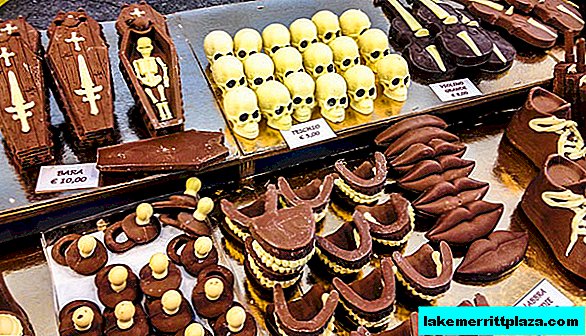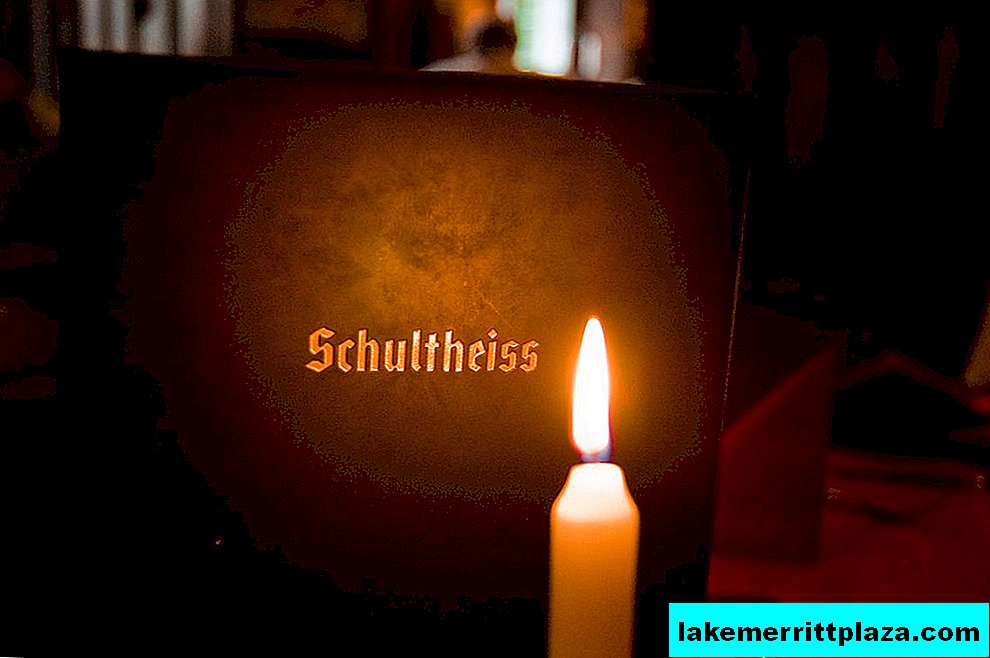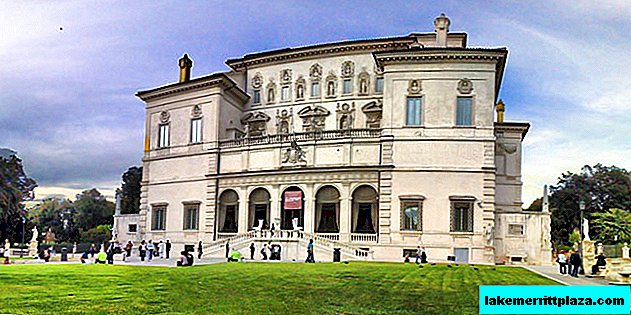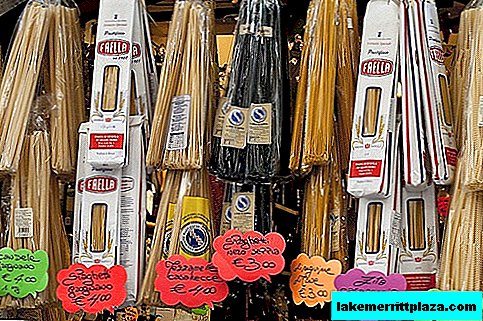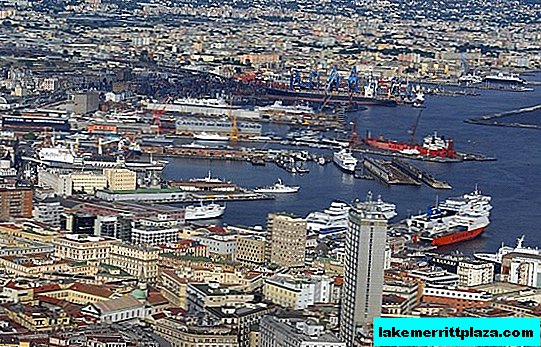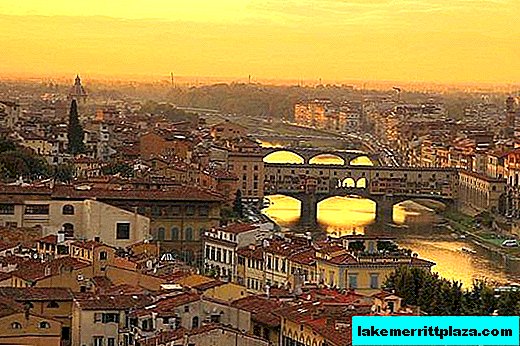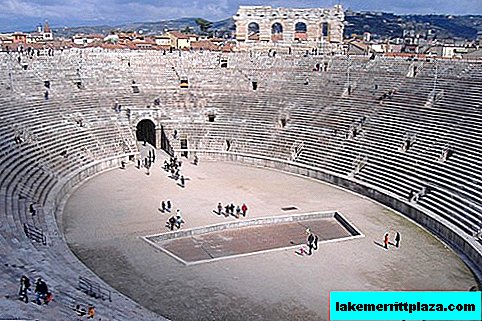Bread is the simplest product for the preparation of which only a few ingredients are needed: flour, water and yeast. But it’s worth adding a couple of additional components, changing the form or the exposure time of the dough, and there will be a great variety of options for your favorite pastries.
So in Italy, each region can boast of its own variety of flour products. Since 1998, there has been legislation in the republic regulating the production and trade of a popular product. We bring to your attention all types of Italian traditional bread, located in their native areas.
Abruzzo
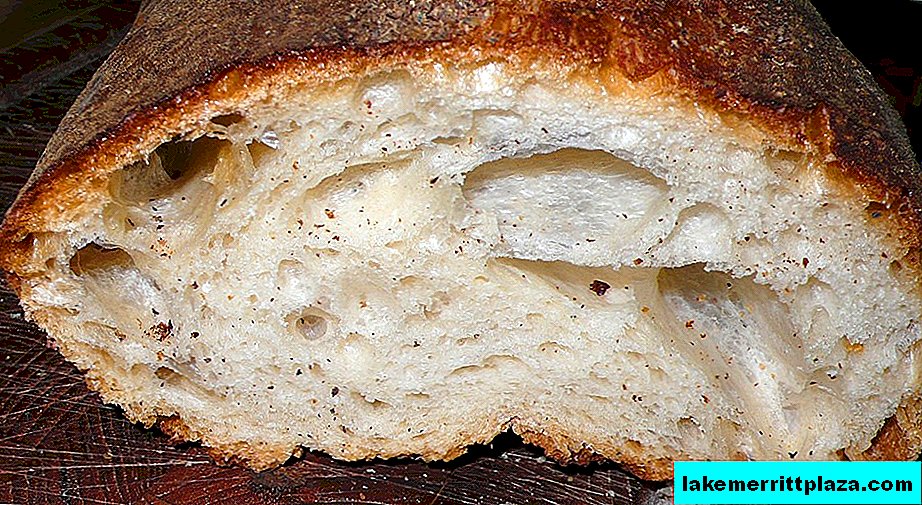
Aquilano homemade bread (Pane Casareccio Aquilano) has a typical wrinkled shape with a bright golden crust 3-4 mm thick. Fresh bun is crispy with the aroma of corn toast, although wheat flour is mostly present.

Another representative of the region’s bakery products is Parruozzo. The main ingredient in its composition is cornmeal. Before making the dough, it is brewed with boiling water, leaving to rest all night. The bread has a dark crust and a rich corn flavor. On Italian tables, he often accompanies vegetable dishes.
Puglia
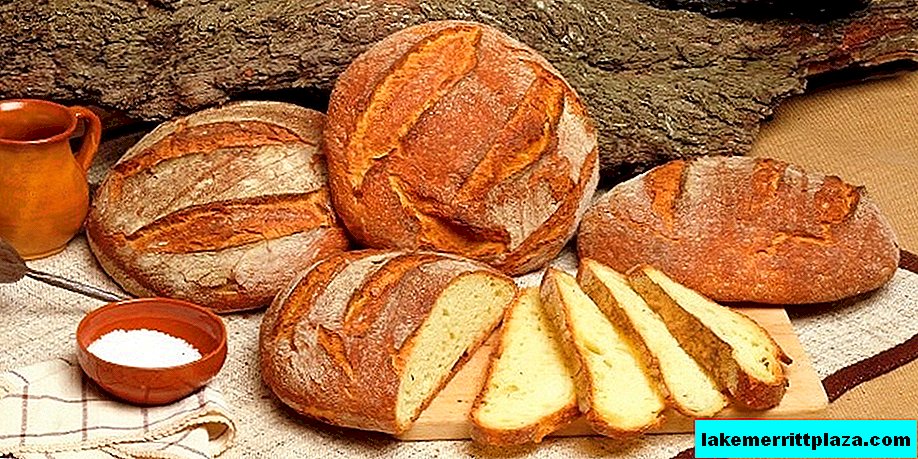
Altamura bread (Pane di Altamura) is produced in all corners of Puglia. Its high quality is confirmed by the DOP category. It is prepared from premium wheat flour, water, yeast, salt and malt. Hard wheat is rich in gluten, which makes the product particularly healthy. Bake Altamura in a wood or stone stove. The crust of bread turns out to be very crispy, and the crumb is light yellow in color. A loaf of round shape with one or two notches in the upper part.

Taralli is a typical Apulian pastry. This is a non-yeast product, which includes: flour, water, salt, olive oil and dry white wine. Pieces of the prepared dough are rolled into tubes, and then they are closed in a ring. Cooking consists of two stages. On the first - Taralli is boiled, on the second - dried in the oven to a golden color. In their appearance, they resemble domestic bagelsbut in Italy they are consumed as bread while eating.
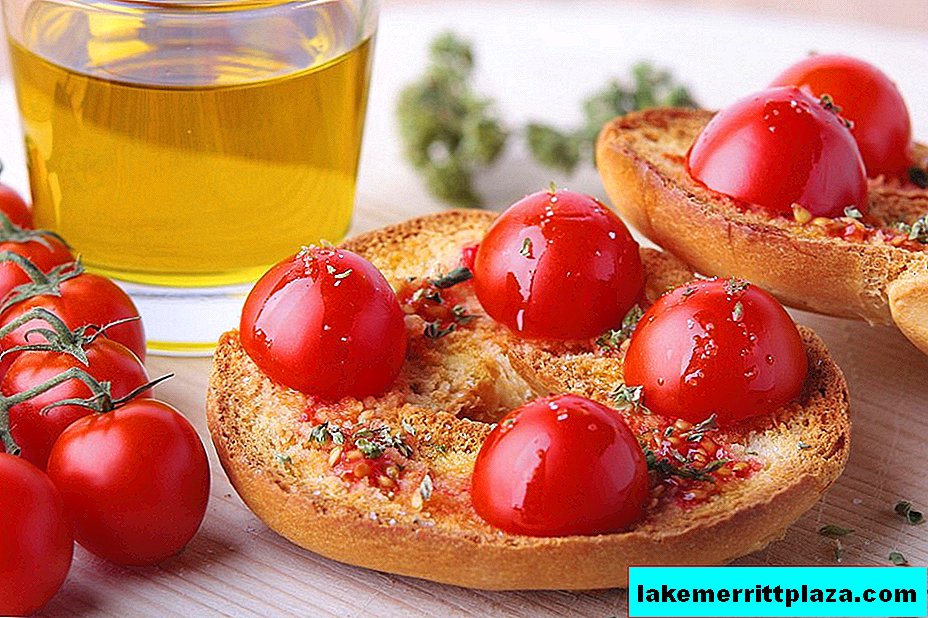
Friselle is bagels made with durum wheat flour. They are not just baked, they are baked twice. Ready-made buns are cut lengthwise in half and baked again. As a result, Friselle has a compact, dry structure. Before use, it is soaked to taste in cold water to the desired softness. Usually sprinkled with garlic, tomatoes, oregano or watered with olive oil.
Basilicata
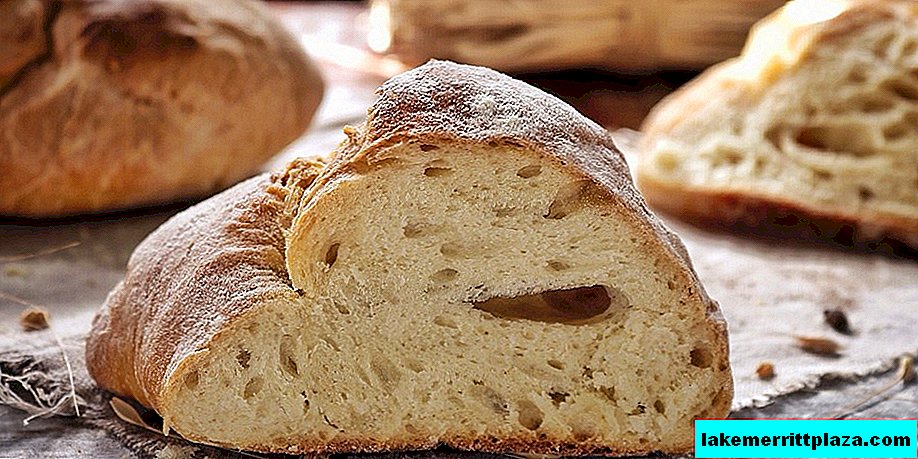
Bread Matera (Pane di Matera) - a product obtained by the ancient baking system. Dough with semolina and durum wheat flour is baked in wood-fired ovens. It is marked with the IGP quality mark. It resembles a crescent in shape. Loaf weight 1-2 kg. The crumb is light, the aroma is saturated. Matera refers to long-term storage products (7-9 days).
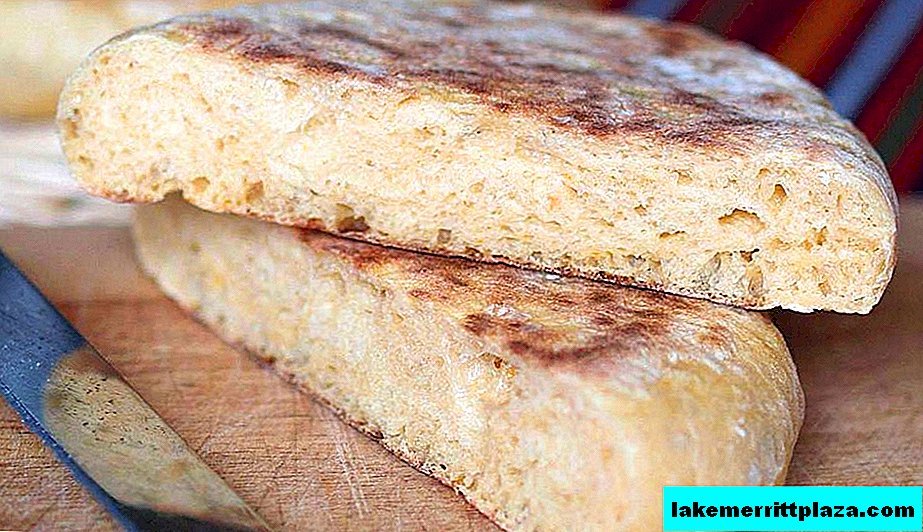
Rukkul (Ruccul) is a focaccia, but of an earlier origin. It consists of standard bread dough flavored with garlic, butter, oregano and chili. The entire manufacturing process is manual. Just like his close relative, Rukkul is baked in the form of a cake. Its surface is usually uneven, golden brown.
Valle d'Aosta

The typical bread of the Valle d'Aosta region is called Pan Ner or Black. Prepare it from rye flour. It has a hard thin crust and compact structure. It is often flavored with caraway seeds or fennel. Today, there are still bakeries in the region that manufacture Pan Ner in old-style furnaces.
Veneto
In Veneto, Bovolo bread is traditionally baked. He stands out among his brethren in an unusual spiral shape.. It consists of soft flour, water, salt, yeast and beer. Ripe dough is divided into small pieces and twisted into a spiral. The result is small buns of golden color and weighing no more than 150 g.
Choppa (Cioppa) or Choppetta (Cioppetta) - a typical bread of the province of Vicenza. He is also astonishing at his form of the cross. Depending on the bakery, it is made either with more elongated or more rounded sides. It consists of flour, water, several types of yeast and salt. The finished product has a compact structure and a crisp. Most often, a choppa loaf is cut into separate buns and used for sandwiches.
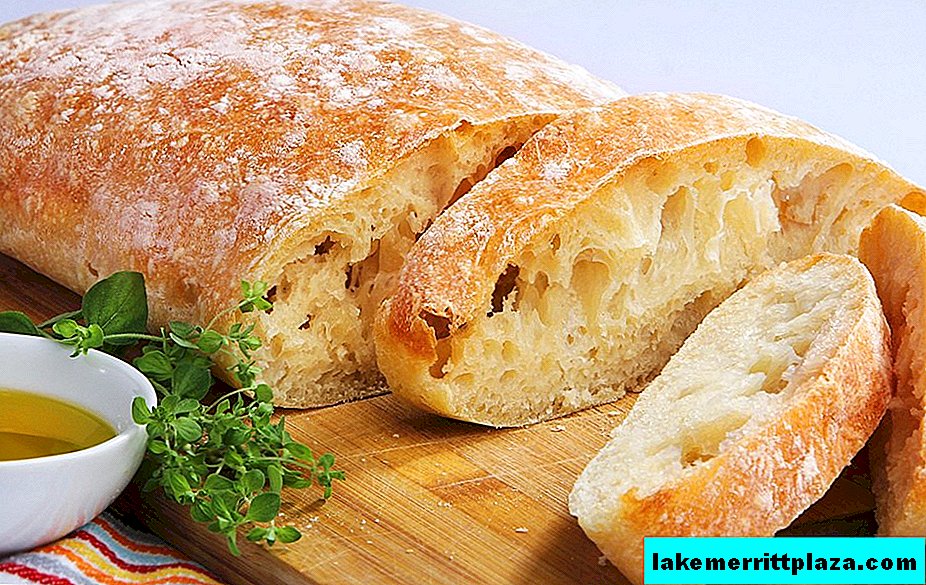
Ciabatta is the most famous Italian bread for the domestic consumer. The product feature is a large amount of liquid in the composition (70% of the total mass of flour). It is easy to recognize by its dark crust and highly porous crumb. The taste is delicate, slightly salty.
Calabria
Pitta bread, made from flour, water, salt and yeast, can easily be confused with Armenian pita bread. It is round, flat and soft. This baking is typical of the Middle East. Pitta usually not only accompanies main dishes, but is also used as a snack with sauces.

Campaign
Peasant bread (Pane Cafone) typical of the Campania region, but distributed throughout Italy. The peculiarity of its preparation is that in the composition there is a mixture of wheat and semolina. This combination makes the taste of the product refined and rich. His crust is dark, crispy (a little stiff). Although Cafone appeared as the food of the poor, today it is considered one of the best loaves of the republic.
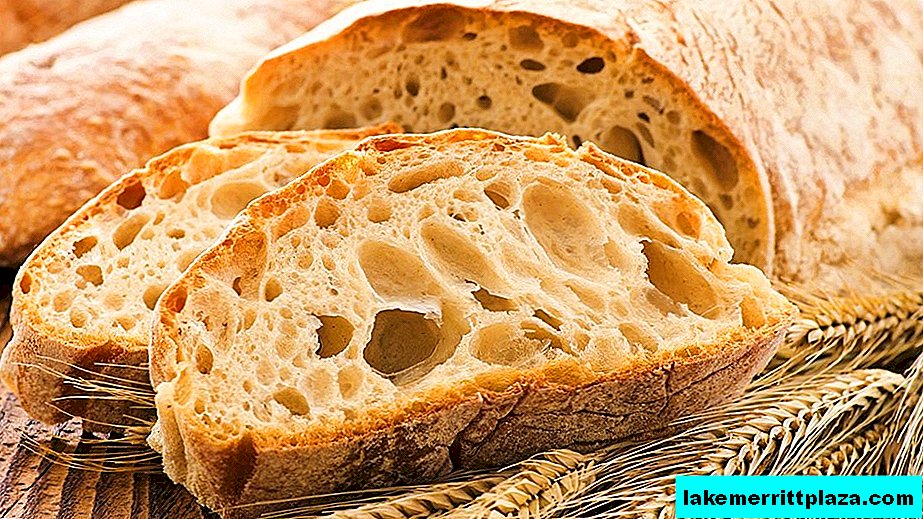
Pagnotta di Santa Chiara is more like a pie than bread. It is baked from flour, mashed potatoes, yeast, lard and pepper. Finished product is decorated with anchovies and tomatoes, and also sprinkled with oregano and parsley.
Lazio

The main character of Lazio's bread houses is undoubtedly called Genzano's Home Bread (Pane Casareccio di Genzano). This product is endowed with the protected geographical name IGP. It is prepared from flour, yeast, salt, water and wheat bran. The weight of loaves varies from 0.5 to 2.5 kg. A crust of dark color with interspersed bran. The aroma of Genzano's bread is described as the smell of fresh grain. The taste is pleasant with a slight acidity.
Liguria
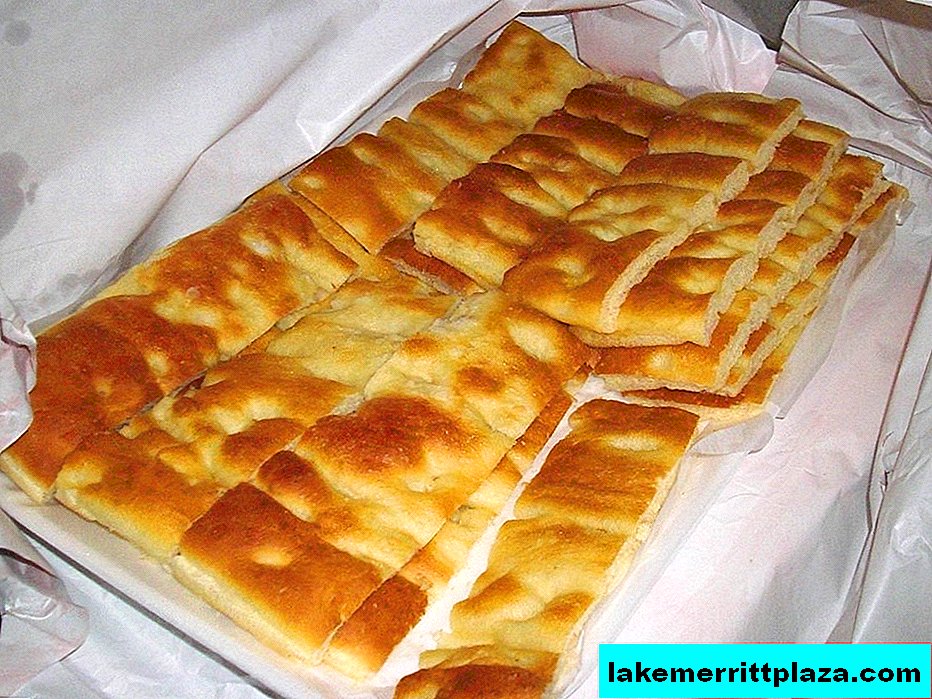
Liguria is famous for its Focaccia Genovese. A tortilla is prepared from wheat flour, olive oil, salt, water and yeast. This is a real delicacy, which can be both in the early morning for breakfast, and late in the evening as a night snack. At dinner, she is accompanied by a small glass of white wine. There are many options to complement classic bread. For example, focaccia with white onion is very popular. It is finely chopped and added to the dough. Traditional include serving cakes sprinkled with olives or sage. Modern versions include a filling of meat, cheese, tomatoes, nuts or raisins (sweet).

Another Ligurian specialty is Ciappe. Their name literally translates as "flat stone". The composition includes flour, water, oil and salt. The finished dough is rolled out with a thickness of only a few millimeters and a diameter of 10-15 cm. Like focaccia, Chiappe can be supplemented with onions or spices. Crispbread with your favorite accompaniment is a great option for a light breakfast.
Lombardy
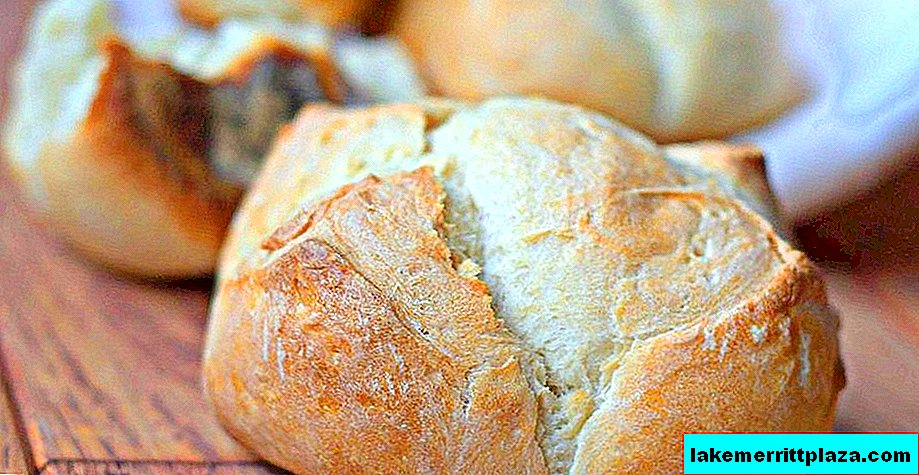
Michetta (Michetta) - a type of bread, widespread in Lombardy (especially in Milan). It is easy to recognize by its typical star shape. For its preparation, the flour is mixed with water, malt and yeast. The dough ripens for at least 16 hours. In the final, it has a "perfect" elasticity. Due to its delicate structure, Miketta is widely used for making sandwiches, but, as a rule, loses its crispness within a few hours after preparation.
Mantovano (Mantovano) - a typical baking province of Mantova. This is one of the oldest types of bread in Lombard cuisine. It includes several types: Baule (Baule) and Richolona (Ricciolona). The second version is supplemented with butter and lard. Traditionally, it is made from flour, water and sourdough. The finished product is characterized by a dry texture. Mantovano has the shape of a long loaf with ridges formed due to transverse incisions in the dough. Size is usually not large: from 30 to 250 g.
Marche

Crescia bread is produced throughout the Marche region in various ways. So, in the Montefeltro district, it is known as Spianata, and in Pesaro - Crescia Brusca. Flavored with herbs and cracklings, the product is called Pizza coi grasselli or "Herb Pizza." Traditionally, Kreshu is supplemented with oil, rosemary and onions. In some provinces, it is baked on the grill. The product has a flat, round shape with a height of about 2 cm. In its appearance, it resembles the basis for pizza. Often used as a base for many fillings.
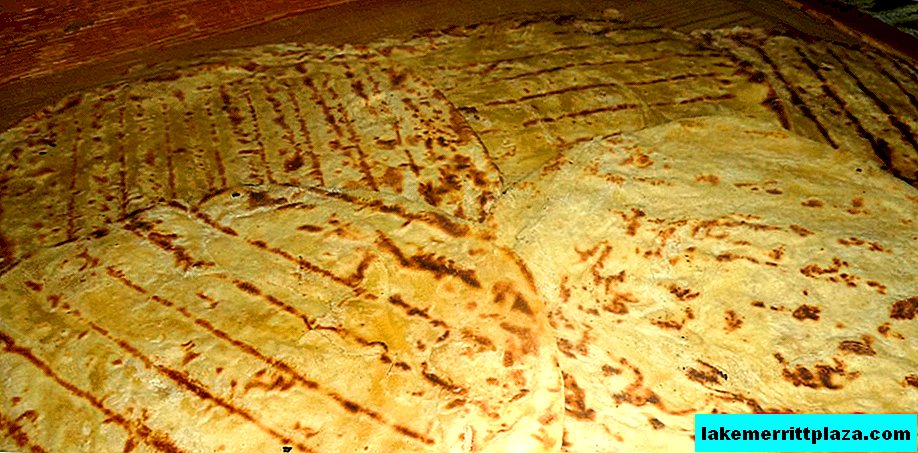
On the territory of Pesaro and Urbino cook Crostoli del Montefeltro (Crostoli del Montefeltro). Such bread is like a thin cake. The color of the crust is usually light golden. They eat it more often with sausage, cheeses, meat and grilled vegetables.
Molise
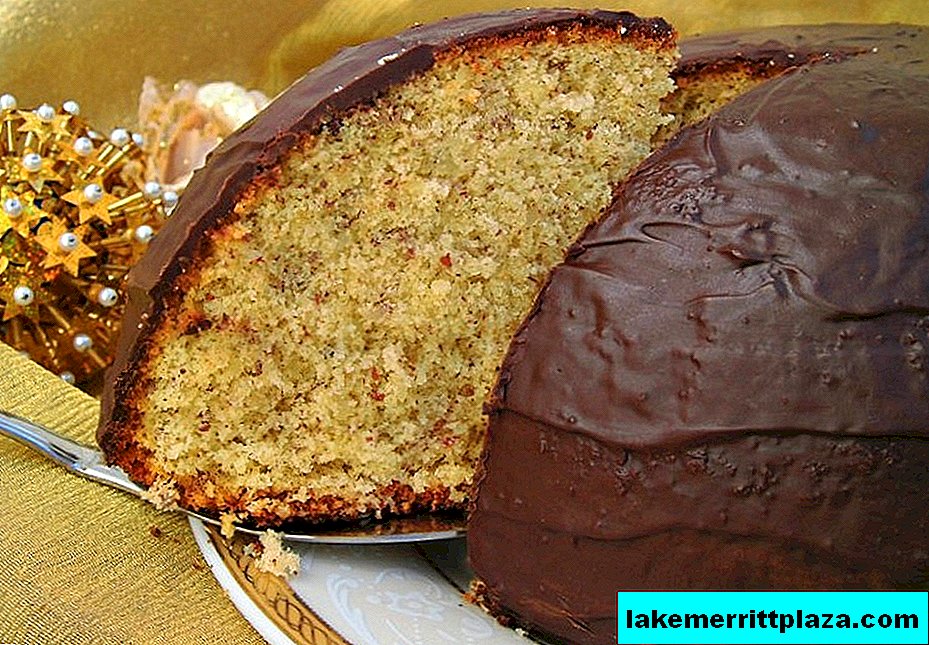
Like in Abruzzo, in Molise they bake their own corn bread called Parrozzo Molisano. Unlike its neighbor, it also contains wheat flour and boiled potatoes. Prepare the dough for 2 days, and then bake on high heat.
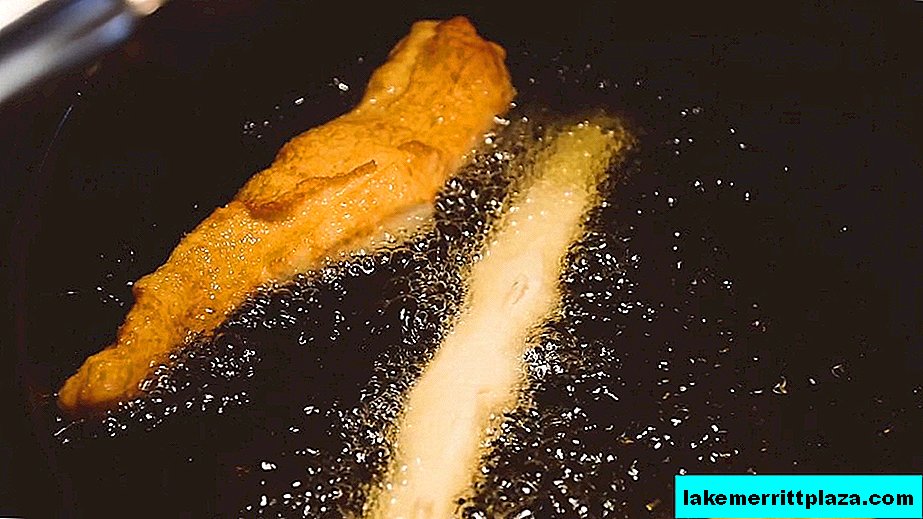
Scarpelle (Scarpelle) - one of the most unusual loaves of Italy. Although its composition is quite mundane (flour, water, salt and yeast), but it does not make it the usual baking, but fry in olive oil. The result is irregularly shaped bread cylinders with a golden crust.
Piedmont
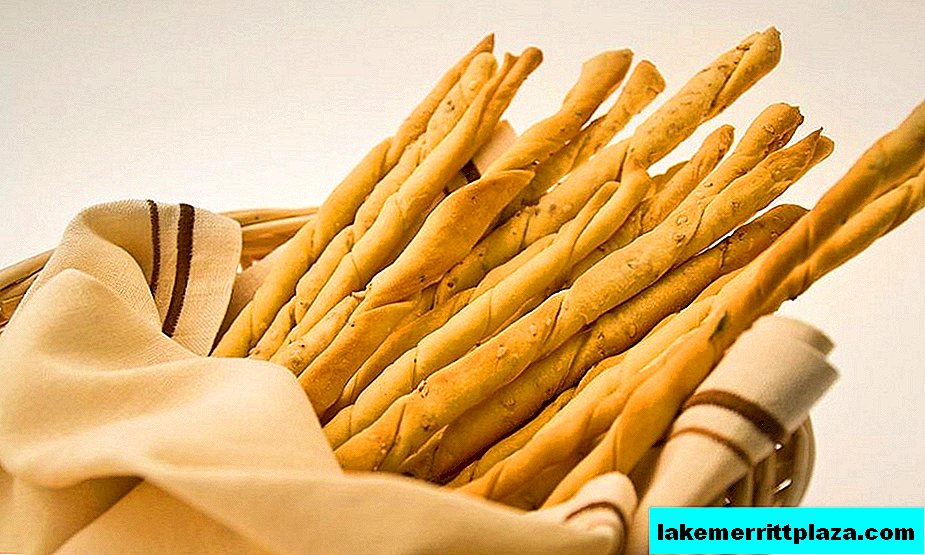
Bread called Grissino is the main star of Piedmont. It is a thin sticks from 20 to 80 cm long. For its preparation use wheat flour, water, milk, yeast and salt. To obtain more delicate and fragile options, some oil is included in the composition. After exposure, the dough is rolled out manually and baked for 15-20 minutes. The result of this work is the unrivaled crispness of Grissini.
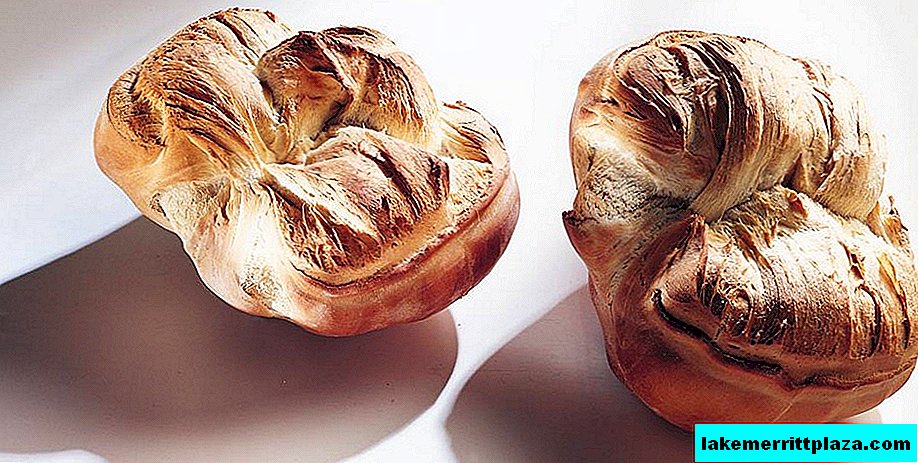
Biova Piemontese is another type of bread traditional for the region. It consists of flour, yeast water and salt. It has an oval shape. Often Biova is baked in the form of small rolls for the preparation of a variety of, including sweet, sandwiches.
Sardinia
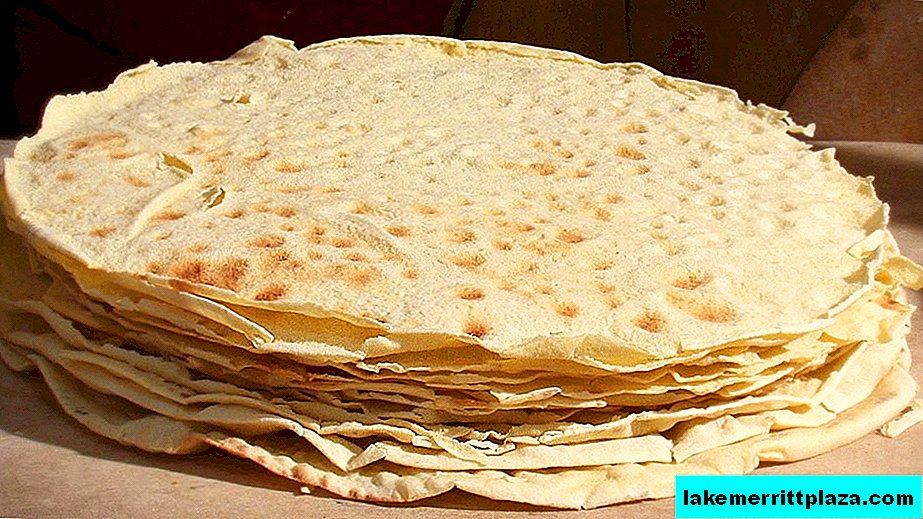
Carasau is a typical Sardinian bread whose second name sounds like carta da musica (musical paper). It characterizes its incredible crunchiness, which creates a rather "musical" noise when chewing. A product is made from durum wheat flour, water, yeast and salt. Use it in two ways. Dry Karazau accompanies both salty and sweet dishes. Pre-soaked in water - it serves as the basis for a variety of fillings: meat, cheeses, vegetables.
Sicily

Pagnotta del Dittaino, like many DOP breads, is made from premium flour, as well as water, yeast and salt. Loaves are usually medium in size (1-1.4 kg), round in shape with a thick skin and yellow crumb. The product is stored for no more than 5 days.

Mafalda is a bread made from flour, semolina, malt, sesame, yeast and salt. Its shape resembles a sleeping snake sprinkled with sesame seeds. The dough is twisted into a cylinder and folded in a zigzag with 4 loops, the remaining end is laid on top along the length. In Palermo bakeries, it is the most common type of baking.
Trentino Alto Adige
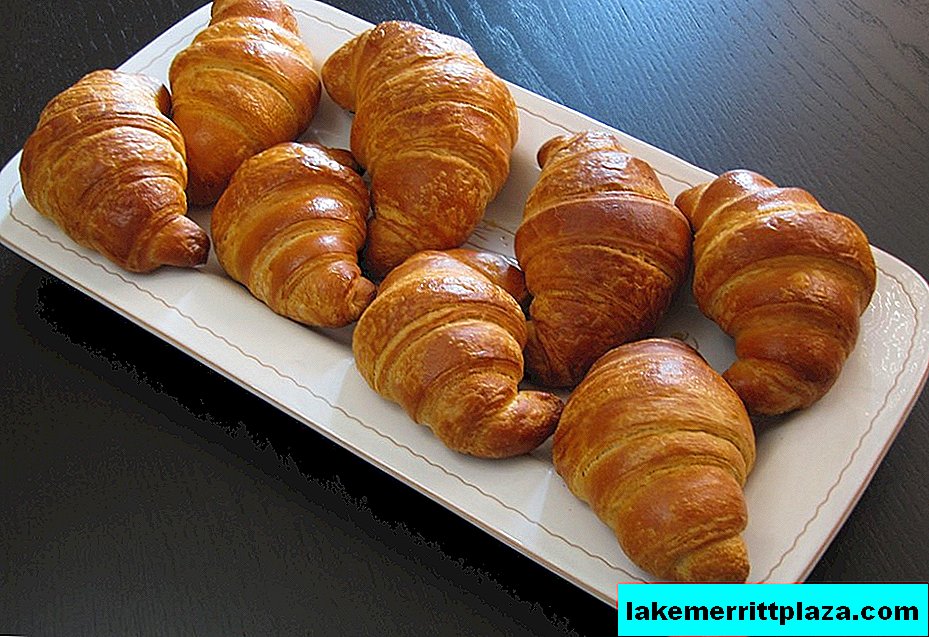
Bread from Trentino Alto Adige is called Chifel. In shape, it is identical to a croissant, which confuses uninformed buyers. In fact, it contains no sugar, only flour, water, oil, yeast and salt. The result is a small bun weighing 30 g with a shiny thin crust. Her taste is delicate with a slight salinity. Kifel is great for making both sweet and savory breakfast sandwiches.
Tuscany

Tuscan bread (Pane Toscano) is famous for its "tasteless" taste due to the complete lack of salt. It has a rectangular, ovoid or round shape and a golden crust color. It is often used to make croutons, slicing and frying in the oven. In 2016, salt-free bread received the DOP quality category.

Throughout the Maremma region, Pagnotta Maremmana is a product made from wheat flour, water, sourdough and brewer's yeast, and salt. The loaves are round, the color of the crust depends on the type of flour (from light to dark gold).
Friuli-Venezia Giulia

Biga Bread, a literal translation of which sounds like a “chariot,” is common in Trieste. For its preparation, flour, water and yeast are mixed in such a ratio that the finished product is rather dry. It has a semicircular shape with a small crack at the top.
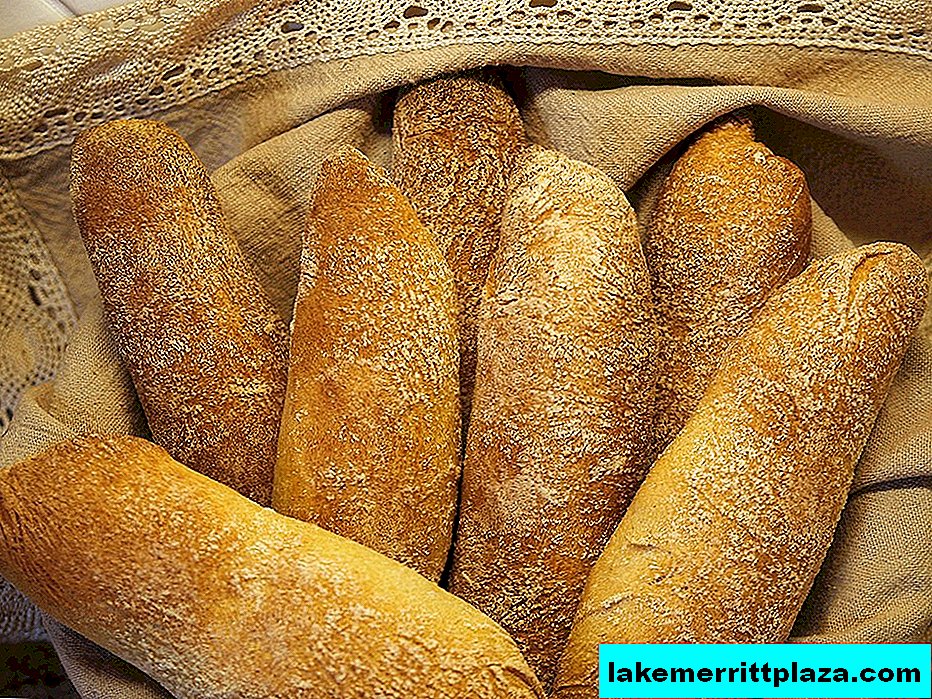
In the province of Udine, it is impossible to get past the traditional Grispolenta. This is a kind of rustic bread sticks 15 cm long and thumb-thick. It contains corn and wheat flour, water, olive oil, lard, sourdough and salt. Cornmeal gives the finished product a delicate flavor and friability.

Typical of the colder months in the Friuli region is Pan de Frizze bread. It is made from wheat flour, eggs, cracklings, lard, salt and yeast. Visually, it resembles a tortilla with a filling. Such a product is especially popular in peasant areas.
Umbria

Bread Terni (Pane di Terni) is produced throughout Umbria. They make it from wheat flour, water, salt and several types of yeast. Loaves are oval or round and weigh about 800 g. Terni is known for its reputation for "homemade bread."

Pan Caciato - Cheese bread, a legacy of classic Italian cuisine. In its composition, in addition to flour, yeast and water, there are: olive oil, Pecorino cheese, walnuts and raisins. After ripening, the dough is cut into pieces weighing 650 g, left to rise and baked in a preheated oven. Pan Cacciato along with a cheese flavor is endowed with notes of sweet wort due to the presence of raisins in it.
Emilia Romagna
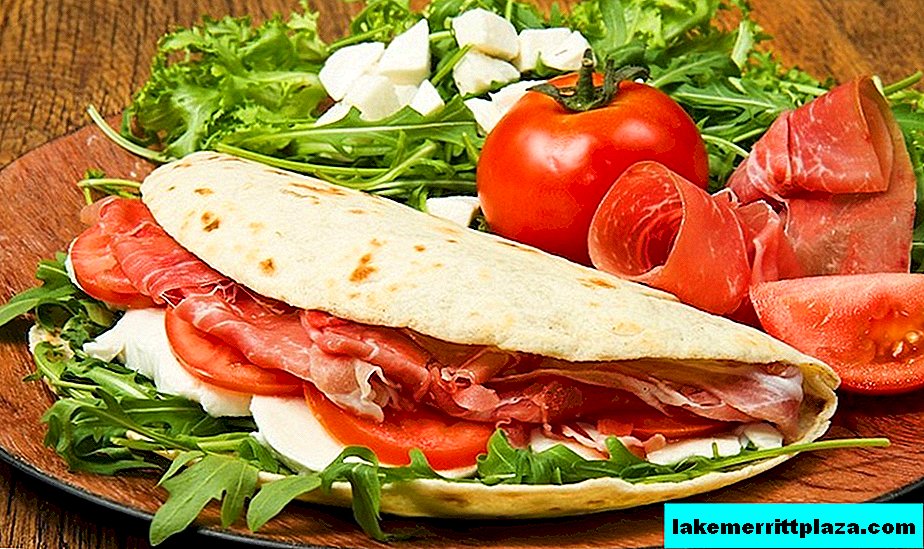
The most famous bakery product of Emilia-Romagna, undoubtedly, can be called Piadina Romagnola (Piadina Romagnola IGP). It is made from wheat flour, water and salt. Knead the dough with your hands and roll out with a rolling pin until a disk of the right size is obtained. Some options include adding a little oil or fat to the composition. Bake the dough on stone slabs. The finished bread is in the form of a cake with a diameter of 15 to 30 cm and a thickness of 3 to 8 mm. Pyadina accompanied by ham or sausage is a common street snacking method.
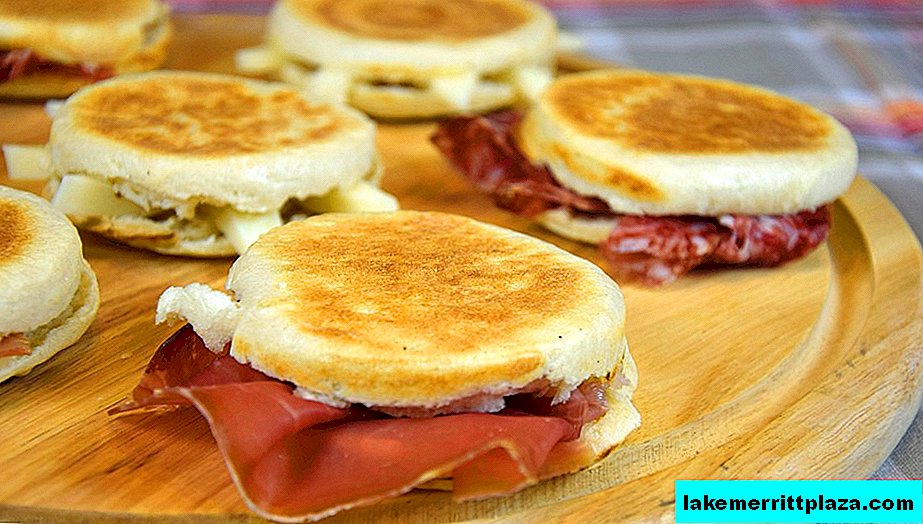
The province of Modena is famous for its Tigella Modenese, made from flour, water and salt. The peculiarity of this bread is that it is baked in special molds that imprint a beautiful pattern on it. Buns are small in size (diameter 15 cm, thickness 1.5 cm). In many taverns, Tigella is on the menu as a main course.

Spears Ferrarese (Coppia Ferrarese) - bread from the province of Ferrara (Ferrara). Its name literally translates as "couple." It is due to the shape of the product, resembling two ropes connected to each other. For high quality in 2004 the product was awarded the IGP category. Its composition includes: flour, lard, olive oil, sourdough, salt and malt. The weight of the finished bread varies between 80-250 g. Crisp and tender middle make the Spear an excellent "tool" for collecting sauces from a plate during dinner.
Having traveled to all regions of the republic, our review has come to an end. Italian bread is not just pastries. This is a great way to win the heart of a tourist once and for all.

